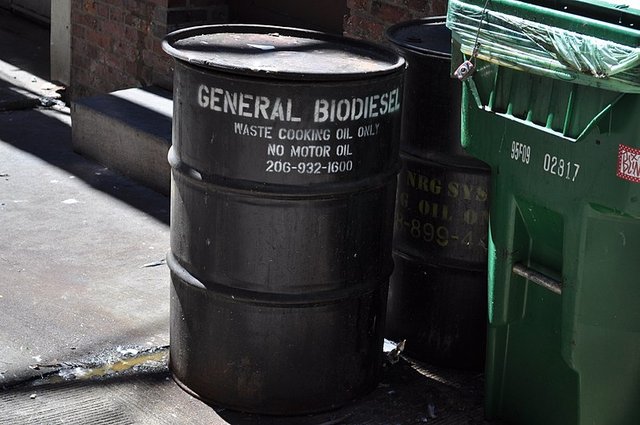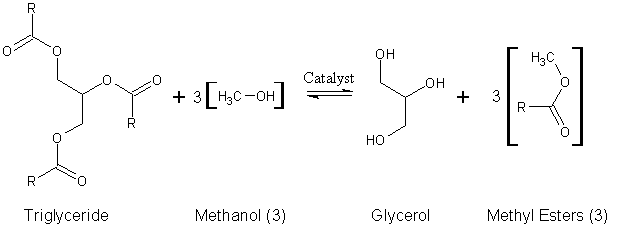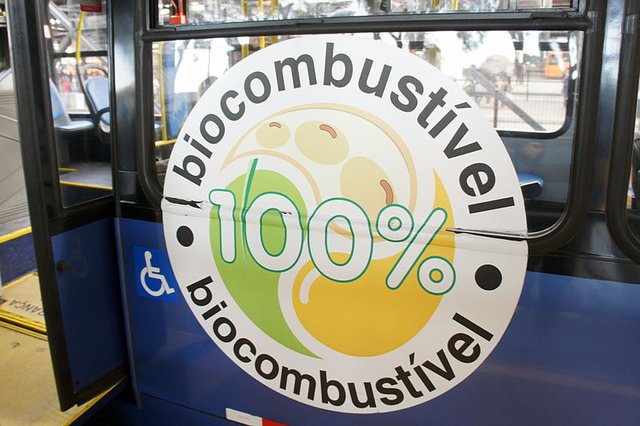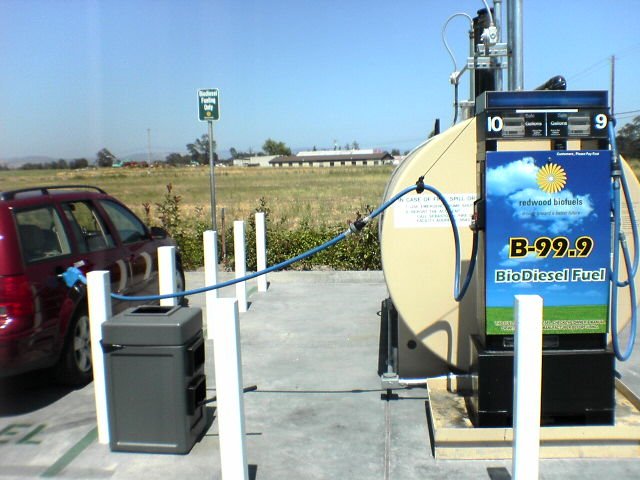Can Diesel engines run on Vegetable oil? Let's find out.
Technology has been undoubtedly a blessing to the human race. A lot of things that have not been possible before now have come to be a piece of cake (or akara) all in the name of technology. However, technology is not a total bed of roses as it has its own bad effects (pardon me, I am not in for a debate today).
Man’s activities on earth has involved the release of one thing or the other. Oh yes, we eat stuff and release gases. We also burn stuff, use machinery and perform activities that involve the release of gases that are not very good for the environment. These gases in the environment is what causes the known menace of global warming.
In case you don’t know how these gases cause global warming, let me quickly summarize; these gases that are released have the ability to trap heat from the sun and as a result, cause the temperature of the environment to be higher that supposed to. When this happens on a large scale, you have global warming.

Heavy duty truck oozing some black! Image source Wikimedia commons Public domain
One of the widely known sources of greenhouse gases are automobile vehicles; well, that’s the bitter truth. These vehicles run on fossil fuel (petrol or diesel) and I expect us to know the result of burning fossil fuels. As a result of these, a lot of regulations and measures have been put into place to reduce the release of these gases. @temitayo-pelumi here discussed some ways by which emissions are controlled in the automobile engine and the regulating standard, it is a nice read I must say. Introduction of solar powered and electric vehicles have also helped to reduce the emissions (since they are emission-less) but you would agree with me that we still have a long way to go concerning the issue of emissions from automobiles.
Although these regulations go a long way in reducing the amount of bad gases emitted by the automobiles, it doesn’t stop it. One way or the other, either as a result of age or improper use of the engines, the gases find their way into the environment and in communities where the emission control for vehicles and machinery is not taken serious (like a country I know very well), there is bound to be a menace of harmful gases being released steadily into the environment.
Recall in one of my posts I discussed why and how diesel engines get to be able to handle so much load which is the reason they are used in heavy duty machinery and automobiles. As a result of this, diesel engines are still very much around and relevant. Compared to petrol, diesel engines emit more pollutants and is more evident. Sometimes, we would recognize a diesel engine by the type of exhaust coming from it. I don’t think I need to state that this exhaust is bad for the environment and the human body as it is said to be carcinogenic source
Now the question is; can we substitute diesel with something else?
Definitely not petrol simply because as I explained in the post I mentioned earlier, the mode of operation of the diesel and petrol engines are different, diesel is a heavier fuel than petrol, it has a higher energy value and so on. All these and more are why we cannot use petrol in a diesel engine. In fact, who said petrol engines do not have emissions?
What then can we do? Stop using diesel engines?
No, it’s not that bad. Only if we can have diesel that does not have a negative effect on the environment. Or is there? Yes, there is actually a type of diesel that does not harm the environment as the known diesel fuel does. What’s its name? BIODIESEL!
Flash back!

In case you don't know what an oil lamp looks like. image source: wikimedia commonsunder the Creative Commons Attribution-Share Alike 3.0 Unported, 2.5 Generic, 2.0 Generic and 1.0 Generic license.
In times past, humans used oils such as vegetable or palm oil as fuel for lamps and lanterns. If you take a critical look at that, it means the oils possess some characteristics as normal fuels that make them able to burn. Although these oils are not used as fuel for lighting anymore, apart from their use in cooking, they have quite recently found application in the automobile industry.
Well, as silly as it sounds, you can actually power up your diesel engine with vegetable oil, I am not kidding but I wouldn’t advice anyone to do such because of numerous reasons. Although the vegetable oil can actually serve (or almost serve) the purpose of making the engine run, it would cause problems in the engine. First, because the vegetable oil is of a higher viscosity (ability to flow freely) than normal diesel, it would be harder to atomize (i.e. break down into smaller particles to be sprayed) by the injectors causing the combustion to be incomplete. The high viscosity of the oil would also mean the fuel pumps would need to work harder to push the oil/fuel around and some other related issues.
Using vegetable oil directly in a diesel engine is not totally a good idea and would actually require the engine to be modified to be able to run smoothly on vegetable oil. If you compare the overall costs, using Diesel is quite less expensive than vegetable oil so, it really is not worth the trouble unless you have a constant and reliable supply of used vegetable oil that you can filter (yes you would need to remove the solid food particles that would be left over) and you can afford to modify the engine for the job or you just have a lot of money to throw around.
What then is biodiesel?

A drum for collecting waste cooking oil for biodiesel production. Image source: wikimedia commonsunder the Creative Commons Attribution-Share Alike 3.0 Unported license.
Well, I am done with the not so good news and here is the good news, vegetable oil can be processed and converted into a type of fuel suitable for use in diesel engines known as biodiesel
Biodiesel is a renewable form of diesel that is made from vegetable oil, soybean oil or animal fat. Sounds silly? No I am not kidding. This form of diesel is actually ecofriendly and renewable. Ecofriendly in the sense that when burnt, it does not produce harmful gases as the normal diesel fuel does. It is renewable in the sense that it can be derived from food crops such as soybean, rapeseed, palm, canola or animal fats etc. as a matter of fact, waste (i.e. used) cooking oil from restaurants can be processed to produce biodiesel.
Getting interesting?
Don’t get too excited, I am not saying you should grab a can of vegetable oil and pour into your tank (maybe you can). The oil has to go through a chemical processing (just like I stated earlier) known as transesterification. I am not a chemistry enthusiast and I would not want to perform blunders but quite simply, transesterification is a chemical process that converts the vegetable oil into biodiesel(mono-alkyl esters of long chain fatty acids) and glycerin by the addition of an alcohol (methanol or ethanol). Usually, the process is done in the presence of a catalyst to of course make the process faster.

Transesterification Reaction image source: wikimedia commons under the Creative Commons Attribution 3.0 Unported license.
A complete transesterification process would produce biodiesel that is safe for use in diesel engines. This diesel must be free from the other components i.e. the alcohol, catalyst and glycerin need to be separated from the biodiesel. Just like in the image beside.
Biodiesel can be used in engines that were initially designed for fuel diesel without any complications whatsoever. It is simply a better form of diesel!
Is biodiesel better than the known diesel fuel?

Image source: wikimedia commonsunder the Creative Commons Attribution-Share Alike 3.0 Unported license.
If you are someone that is cautious of the effect of human activities on the environment, you would fall in love with biodiesel. It is a cleaner, environmental friendly and non-toxic fuel compared to the fuel diesel which contributes largely to the increasing amount of carbon in the atmosphere which contributes to global warming and also contains less toxic gases. It is biodegradable and thus doesn’t present a pollution threat in the case of a spill. As stated earlier, bio diesel is also a renewable resource as it is derived from plants and resources that would otherwise be a waste.
Biodiesel also provides more lubrication to the engine than diesel fuel and as a result can prevent issues related to wear due to friction. When biodiesel is used in an engine, it also acts as a solvent and helps to clean up diesel fuel that might have been building up (as a result of this solvent action, initial introduction of biodiesel would cause fuel filters to clog up faster, don’t panic, it’s the biodiesel doing its job of cleaning your engine of the bad diesel residues. A few frequent changes of the fuel filter would bring things to normal). Also, biodiesel has a higher flashpoint than diesel fuel and thus, would combust completely better than diesel fuel thereby eliminating the black smoke that is characteristic of diesel fuel.
Ultimately, using biodiesel helps to improve engine life and also ensure a safer environment therefore, it is a win – win situation!
Is biodiesel bad for my diesel engine?

Image source: wikimedia commonsPublic domain
Although biodiesel has proved to be a good alternative to the conventional diesel fuel, it has its own flaws, one of which is the issue of viscosity. Viscosity again? Well, biodiesel is still more viscous than diesel fuel and at colder temperatures, might be an issue and clog the fuel filter or cause issues with the pump. Also, for a particular output, you would need more biodiesel compared to diesel fuel as a result of it having a higher brake-specific fuel consumption. Also, the solvent property of biodiesel makes it possible to react with rubber components such as gaskets and hoses and thus might cause leaks if not attended to (it is advisable to switch the rubber components to synthetic).
A taste of both worlds

Fueling a vehicle with B99.9 Biodiesel. Image source: wikimedia commonsunder the Creative Commons Attribution 2.0 Generic license.
Some auto manufacturers have endorsed the use of B20 and below in diesel engines without the need for modifications. Slight modifications might be needed for higher blends such as B100. Depending on the blend, the biodiesel might have slightly different effects on engines but are overall a healthy fuel.
Biodiesel is not restricted to automobiles alone, it can be used in industrial machinery, trains, aircraft and generators also, it can be used as heating oil and for cleaning of oil spills (all thanks to its solvent property and biodegradability).
CONCLUSION
The gradual depletion of fossil fuels and the increasing awareness of humans to the menace of global warming has caused scientists to ask more questions and seek better alternatives to the fossil fuels.
As a “clean” fuel, biodiesel has proved to be a very promising alternative to diesel fuel and I strongly believe it would stand the test of time. Although the increasing demand for biodiesel might cause a hike in the prices of vegetable oils, the option of using waste oil from restaurants and food production factories still stand.
By and large, the fact that biodiesel is a cleaner and less toxic variant of diesel makes it acceptable by a lot of countries and many of which have adopted it into their transportation system. A list of supported vehicles for biodiesel use can be found here.
REFERENCES
1. Daming Huang, Haining Zhou and Lin Lin, (2012). Biodiesel: an Alternative to Conventional Fuel. 2012 International Conference on Future Energy, Environment, and Materials pp 1874 - 1885. Online source
2. Biofuels A B C
3. Biodiesel
4. What is biodiesel
5. Biodiesel basics
6. how is biodiesel made
7. Biodiesel and your vehicle
Well done @rharphelle! You successfully guessed the match result.
Click on the badge to view your Board of Honor.
Do you want to know your current ranking? Read this post
Do not miss the last post from @steemitboard:
SteemitBoard World Cup Contest - Round of 16 - Day 3
Do you like the SteemitBoard World Cup Contest?
Vote for @steemitboard as a witness and get one more award!
upvote for me please? https://steemit.com/news/@bible.com/2sysip
Hello @rharphelle
Well written and awesomely presented. It is interesting to know that there several alternatives that will surely replace fossil generated energy such as biodiesels made by processing vegetable oils via the process of transesterification. Science is actually making in roads coming up with worthy solutions that is sure to cause drastic reduction in our dependence on fossil. Even if some of these models might not be cost effective presently, I strong believe they would be with time as they are being fine tuned and refined to deal with prevailing challenges.
Regards
@eurogee of @euronation and @steemstem communities
You are right sir. having discovered the negative effects these fossil fuels have on the environment, we are tasked with looking for other ways to make it right.
technology is the future
Great post man.
The increasing inclination of the world (well, developed country anyway) towards green technology is cool and I can see more advancement coming with time.
However, what about cost? Don't you think the cost of production of bio-diesel and coupled with relative abundance could be a factor that is slowing down its popularity. By the way, I am not aware of the cost of producing the conventional diesel.
Great work once again.
The cost of production is truly a factor. One of the reasons it has not gotten so much attention. Overall, diesel fuel seems to be more cost effective than bio-diesel.
until there is a way to cover for that, it might not get accepted fully. however, the fact that there is something else we can use in place of diesel fuel is amazing.
Congratulations! Your post has been selected as a daily Steemit truffle! It is listed on rank 5 of all contributions awarded today. You can find the TOP DAILY TRUFFLE PICKS HERE.
I upvoted your contribution because to my mind your post is at least 17 SBD worth and should receive 148 votes. It's now up to the lovely Steemit community to make this come true.
I am
TrufflePig, an Artificial Intelligence Bot that helps minnows and content curators using Machine Learning. If you are curious how I select content, you can find an explanation here!Have a nice day and sincerely yours,

TrufflePigI am not so surprised......science is just weird.
A lot of things we think that are not possible are gradually made possible.
A lecturer in my former university did a research on this topic.
This is just awesome.
Science + Technology = ultimate awesomeness
I'm not just amazed by the quality of the post, but that you decided to deviate from the mechanical (not totally) world for once.
If we eventually get this breakthrough, i believe we would have a safer world to be.
Did i deviate? hehe its always fun to share knowledge
Thanks for being here
Great work as always. Green solutions have helped in time past, they can do it again. This is cool
Every new development sure comes with it pros and con but with time proper measures can be taken to reduce the negative sides
You are right about that one. We will be here when that happens
Well, was taught about biodiesel and biofuels in school but wasn't in an in-depth manner. Glad to finally be able to uncover the misery without spouting too much intellectual jargon.
So how do we go about majorly adopting Biodiesels in developing countries?
Also could it have a major adaptation In every sector? Since everyone is clamouring for green energy.
P. S. this post was highly informative.
Sincerely speaking, adopting biodiesel is not something that should be hard to get but it depends on the government. If they are passionate about renewable energy and greener environment (which i doubt) there can be a scheme set up to collect waste oil or set up agricultural scheme to grow the plants for the feed stock, set up a processing plant and start distribution with awareness of the benefits to the environment.
The only issue is, it is only when you have enough to eat that you would be thinking of planting for vehicles (you know what i mean).
By adaptation in every sector, do you mean use in other machinery apart from automobiles? If yes, i stated that it can be used in trains, aircraft, generators and the likes. Basically; if you have a diesel engine it should be fit for biodiesel (you should check manufaturer specifications tho)
Apt. Also, I detected the double entendre. Thanks, this has been enlightening.
When this gets popularized, the demand for vegetable oil could increase, and scarcity would set in, which will push up the price.
Imagine buying a litre of vegetable for 5000naira just to fry dodo :)
Maybe they should just go with another alternative - zobo could suffice. Don't you think so?
Wait, is it even possible for cars to run on zobo? 😂
Nice piece as always bro
Hehehe thats the bitter truth, popularisation of this would push the prices.
You mean Biozobo oil?
It's waste vegetable oil though, not fresh ones. So I don't think it would push the price of fresh vegetable oil up. Or could it?
Posted using Partiko Android
One cannot get "waste" vegetable oil in large amounts to drive a good market for the bio-diesel, fresh oil can also be used and that might drive the prices